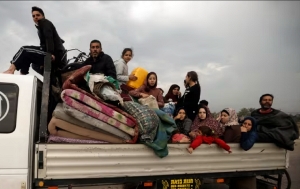The impacts of conflict, particularly in areas like Israel and Palestine, can be profoundly devastating for civilians, including women and children. While I cannot provide real-time or the latest allegations or incidents, historically, the repercussions for these groups can be both immediate and long-term, encompassing a range of social, economic, and psychological facets.
Below are some of the ways in which conflict can affect women and children:
Physical safety and health:
Direct Harm: Women and children are at risk of direct harm due to violence, including bombings, shootings, and other forms of attack.
Access to healthcare:
Conflicts can severely disrupt access to essential healthcare services, disproportionately affecting pregnant women, new mothers, and children who require regular medical attention.
Nutrition and food security:
Wars often lead to food shortages or disrupt the supply chain, leading to malnutrition and related health issues in children.
Psychological impact:
Trauma and Mental Health: The psychological toll of living in a conflict zone can lead to long-term mental health issues, including PTSD, anxiety, and depression.
Loss of loved ones:
The death or injury of family members can have a profound emotional impact, affecting both mental and physical health.
Education and economic disruption:
Conflict often interrupts or severely impacts children's education due to the destruction of schools or the need for children to work to support their families.
Economic stability:
Women, who are often responsible for managing household needs, face increased challenges in providing for their families due to the economic disruptions caused by war.
Displacement:
Many families are forced to flee their homes, leading to the status of internally displaced persons (IDPs) or refugees, which brings its own set of challenges, including loss of property, security, and access to basic services.
Societal Impact:
Increased vulnerability:
Women and children become more vulnerable to exploitation, including sexual violence, trafficking, and forced labour or marriage, especially in refugee or IDP situations.
Loss of support systems:
The destruction of community and family networks impacts emotional and social support systems, which are particularly critical for women and children.
Solution:
It's very important to approach such topics with sensitivity to the complexities of the situation and an awareness of the ongoing human rights concerns. International organizations like the United Nations and various NGOs actively work to mitigate these impacts and provide support to affected populations, emphasizing the need for peaceful resolutions and humanitarian aid.
Opinions of Thursday, 14 March 2024
Columnist: Bill Godson Ocloo



















